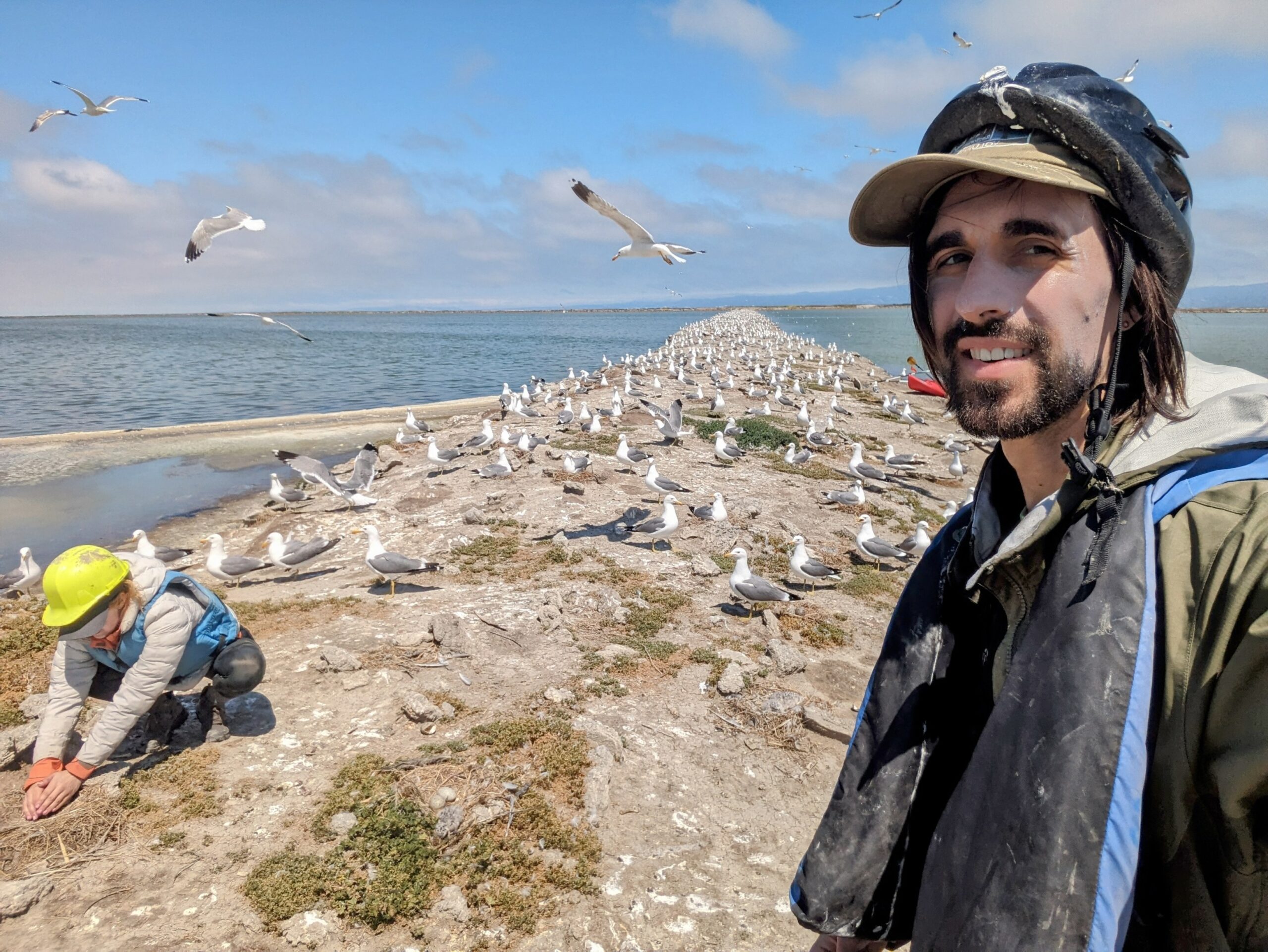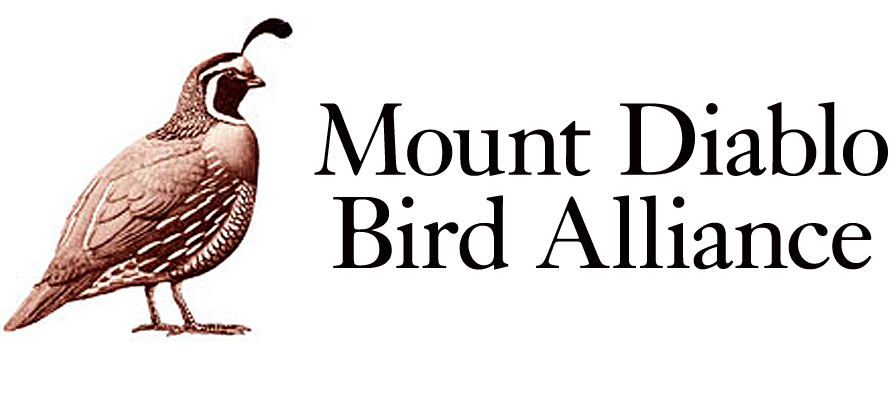
- This event has passed.
Monthly Program: December 2024

Dr. Van Schmidt surveying a California Gull breeding colony on a levee in the salt ponds
Flows of Water and Waterbirds across California
Nathan Van Schmidt
Our December meeting will be held the second Thursday of the month, on December 12. We will meet in person at the Camellia Room at the Gardens at Heather Farm.
6:30 PM Doors Open
7:00 PM Announcements
7:15 PM Refreshments and Raffle
7:30 PM Main Program: Flows of Water and Waterbirds across California
*as a conservation organization we encourage you to bring your own mug for coffee or tea
7:30 PM Main Program: Flows of Water and Waterbirds across California
Nathan Van Schmidt
Water has always been the heart of California, providing essential habitat for both waterbirds and people. After the Gold Rush, California experienced rapid and widespread destruction and modification of natural hydrological ecosystems and wetlands. This included the rapid conversion of Delta wetlands to peat farmland, development of many North Bay and San Francisco wetlands, and the conversion of much of south San Francisco Bay to commercial salt production ponds. To recover endangered tidal marsh birds and protect communities from sea level rise, the South Bay Salt Pond Restoration Project is now restoring large swaths of tidal marsh habitat–but they are faced with a new dilemma: many bird species that had used wetlands lost or degraded elsewhere in California have come to use the salt ponds as accidental habitat. Drawing connections across a decade of research on waterbird use of anthropogenic habitats in California and beyond, Dr. Van Schmidt will discuss the contemporary challenges and promising paradigms for conservation of waterbirds in ecosystems that have already been grappling with repeated dramatic transformations over the past 175 years.
Dr. Van Schmidt is an ecologist whose research emphasizes understanding ecosystems and land-use as coupled systems, combining field research with simulation methodology. His talk will explore habitat use and connections between accidental anthropogenic wetland habitats not only in the San Francisco Bay’s salt ponds, but across California, and reflect on how efforts to adapt water-dependent ecosystems to climate change may have surprising trade-offs for wildlife that need to be accounted for. The talk will draw not only on his current work as Director of Landscape Sustainability Science, but also on past research at UC Berkeley on Black Rails in the Sierra Nevada, and on reintroduced Whooping Crane’s use of farmland.
